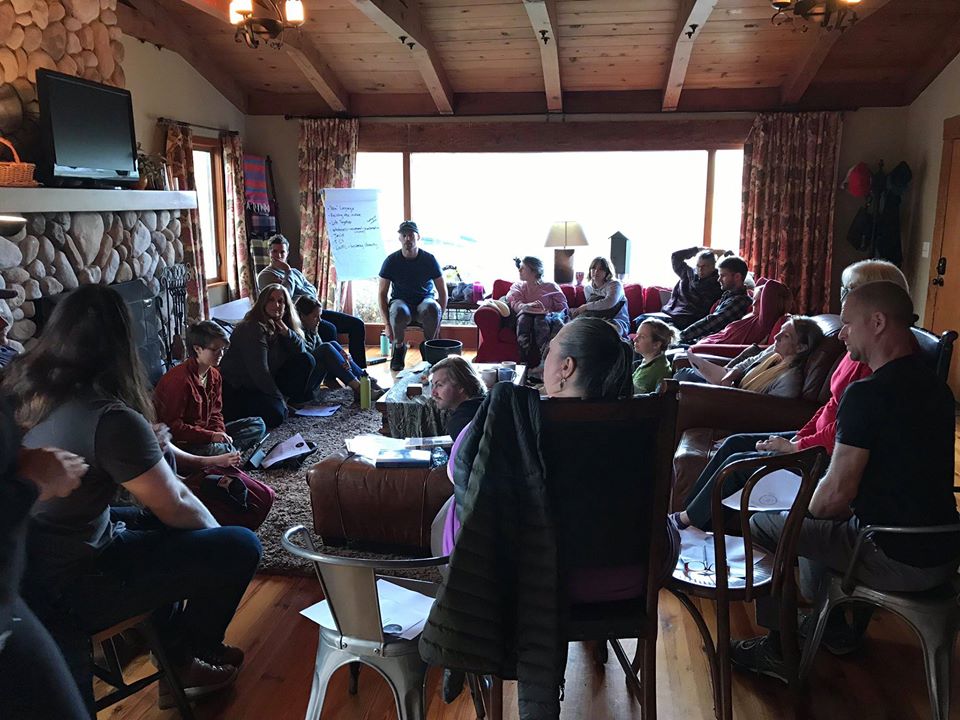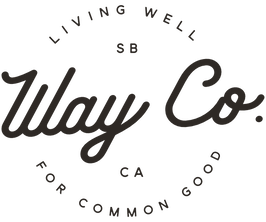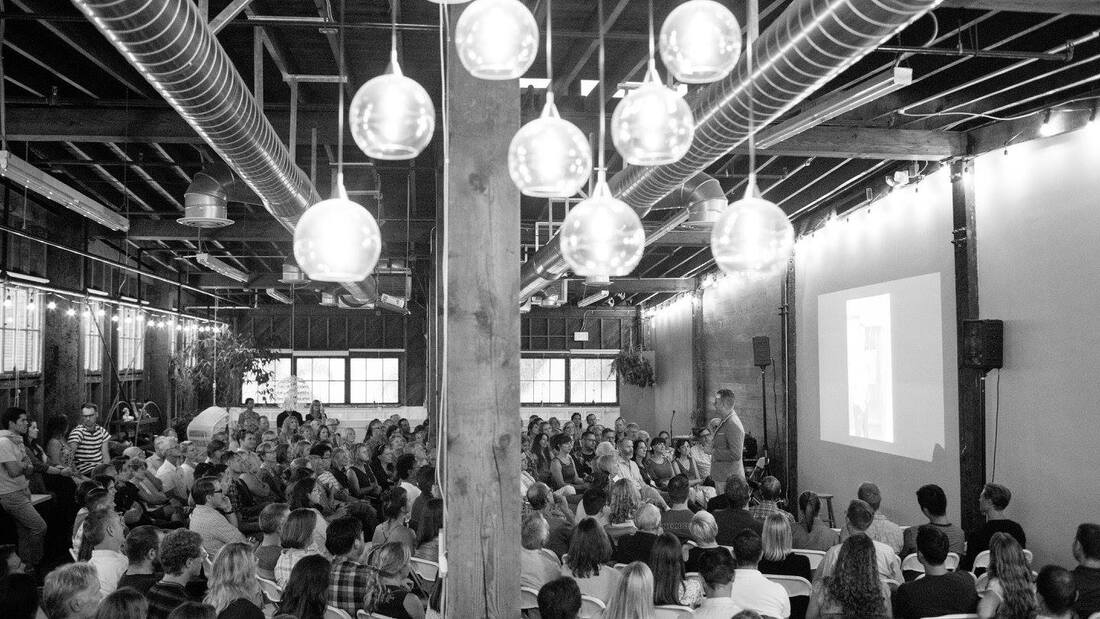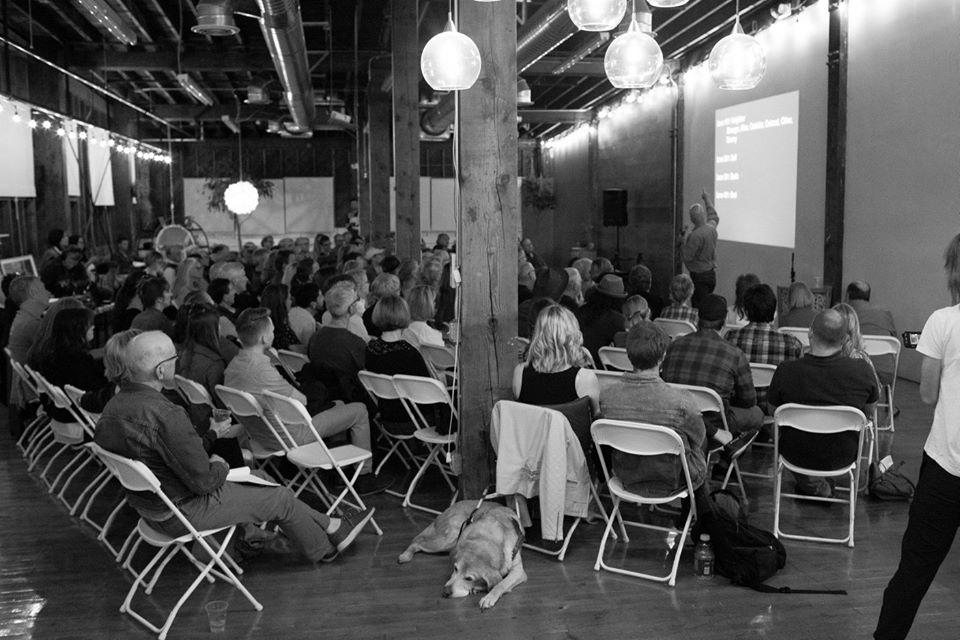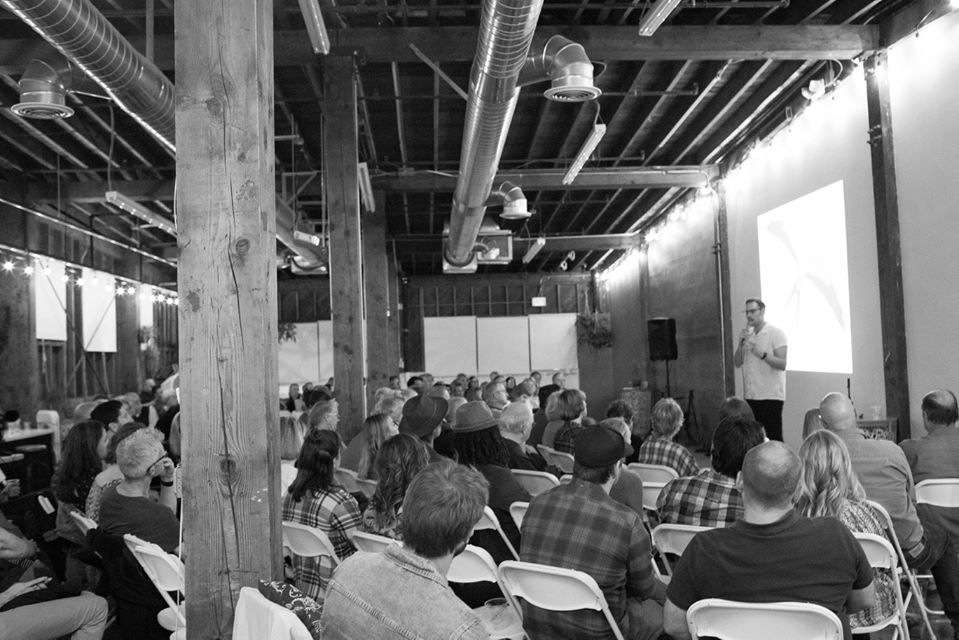I'm Looking for a Way
process theology and the Way Collective
"I'm not looking for answers, I'm looking for a way."
The speaker was a college student, age 21, explaining to me why he wasn't interested in Christianity or, for that matter, process theology.
He was a biochemistry major and singer/songwriter. He'd grown up in an evangelical setting that was, in his words, "too presumptuous and too narrow. It was more about being right than being loving."
The Christians he knew were mostly Protestant Christians preoccupied with questions of belief. "All they want to do is talk about what people ought to believe." The process theologians he knew were mostly Protestant Christians (or ex-Protestant Christians) also preoccupied with questions of belief. "All they want to do is talk about worldviews and metaphysics."
I showed him the tagline for this website: exploring a process outlook on life and way of living in the world. He asked me to say a bit more.
I said that the process outlook on life has some core intuitions, but that it does not claim finality; and that there's plenty of room for alternatives. I suggested he take a look at the twenty key ideas in process thinking and see what he thought. I added that the way of living includes many qualities of heart and mind, and many forms of relatedness, that are much more than a worldview: attention, beauty, compassion, connection, creativity, curiosity, devotion, enthusiasm, forgiveness, hospitality, imagination, justice, openness, playfulness, silence, and zest for life. I pointed him toward the spiritual alphabet of the world's largest interfaith network -- Spirituality and Practice -- and said that this alphabet included much of what is important in the process way.
He asked if the process way is merely an application of its ideas, as if the ideas always come first. I said no: "Often the ideas come after the practice of the way, not before it. The process way is more than applied belief. Much of it comes, not from ideas, but from silence and relationships and love and courage and faith."
He asked if a practice of the process way could include music and the arts. I pointed him toward the material on music and the arts in Open Horizons and also to the process platform for emerging artists: The Becomings Collective. I encouraged him to submit some of his own original songs to the collective. "They don't have to be about religion," I said. "They can be about life."
He asked if the process way was Christian. I said that it certainly can be Christian. I told him about the many process theologians who are Christian, but emphasized that it can also be expressed in terms of other faiths. I told him about Rabbi Bradley Artson in Los Angeles (Jewish), Farhan Shah in Norway (Muslim), Kat Jacobson in Claremont (Pagan), and Zhihe Wang from China (Daoist). I said that the practice of interfaith cooperation is itself part of the process way. I pointed him toward our resource page for interfaith practice: Interfaith Explorations.
I sensed, amid it all, that he was looking for an example of where Christian process theology might be practiced as a way. I think he wanted to reclaim his Christian roots, or, better, find them for the first time. He'd grown up thinking of Christianity as a system of beliefs. In effect, he was looking for a new Christianity. One that included feeling and relationship and beauty and mysticism: albeit while embracing science and reason.
I could think of many examples, but the one that came to mind most readily, especially for him, was The Way Collective in Santa Barbara, California. "It's for people who want to share in the journey of Jesus, without being hamstrung by authoritarianism or locked into dogma, and who want to help create a better world. It has a mystical side, too." I contacted Tim Burnette of the Way Collective to see if I could use some of their material for this page. He said I could. I created this page for him.
-- Jay McDaniel
The speaker was a college student, age 21, explaining to me why he wasn't interested in Christianity or, for that matter, process theology.
He was a biochemistry major and singer/songwriter. He'd grown up in an evangelical setting that was, in his words, "too presumptuous and too narrow. It was more about being right than being loving."
The Christians he knew were mostly Protestant Christians preoccupied with questions of belief. "All they want to do is talk about what people ought to believe." The process theologians he knew were mostly Protestant Christians (or ex-Protestant Christians) also preoccupied with questions of belief. "All they want to do is talk about worldviews and metaphysics."
I showed him the tagline for this website: exploring a process outlook on life and way of living in the world. He asked me to say a bit more.
I said that the process outlook on life has some core intuitions, but that it does not claim finality; and that there's plenty of room for alternatives. I suggested he take a look at the twenty key ideas in process thinking and see what he thought. I added that the way of living includes many qualities of heart and mind, and many forms of relatedness, that are much more than a worldview: attention, beauty, compassion, connection, creativity, curiosity, devotion, enthusiasm, forgiveness, hospitality, imagination, justice, openness, playfulness, silence, and zest for life. I pointed him toward the spiritual alphabet of the world's largest interfaith network -- Spirituality and Practice -- and said that this alphabet included much of what is important in the process way.
He asked if the process way is merely an application of its ideas, as if the ideas always come first. I said no: "Often the ideas come after the practice of the way, not before it. The process way is more than applied belief. Much of it comes, not from ideas, but from silence and relationships and love and courage and faith."
He asked if a practice of the process way could include music and the arts. I pointed him toward the material on music and the arts in Open Horizons and also to the process platform for emerging artists: The Becomings Collective. I encouraged him to submit some of his own original songs to the collective. "They don't have to be about religion," I said. "They can be about life."
He asked if the process way was Christian. I said that it certainly can be Christian. I told him about the many process theologians who are Christian, but emphasized that it can also be expressed in terms of other faiths. I told him about Rabbi Bradley Artson in Los Angeles (Jewish), Farhan Shah in Norway (Muslim), Kat Jacobson in Claremont (Pagan), and Zhihe Wang from China (Daoist). I said that the practice of interfaith cooperation is itself part of the process way. I pointed him toward our resource page for interfaith practice: Interfaith Explorations.
I sensed, amid it all, that he was looking for an example of where Christian process theology might be practiced as a way. I think he wanted to reclaim his Christian roots, or, better, find them for the first time. He'd grown up thinking of Christianity as a system of beliefs. In effect, he was looking for a new Christianity. One that included feeling and relationship and beauty and mysticism: albeit while embracing science and reason.
I could think of many examples, but the one that came to mind most readily, especially for him, was The Way Collective in Santa Barbara, California. "It's for people who want to share in the journey of Jesus, without being hamstrung by authoritarianism or locked into dogma, and who want to help create a better world. It has a mystical side, too." I contacted Tim Burnette of the Way Collective to see if I could use some of their material for this page. He said I could. I created this page for him.
-- Jay McDaniel
